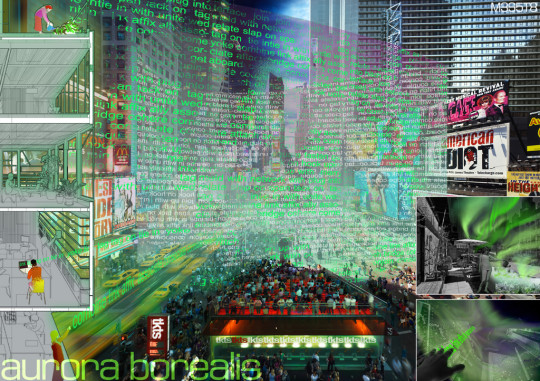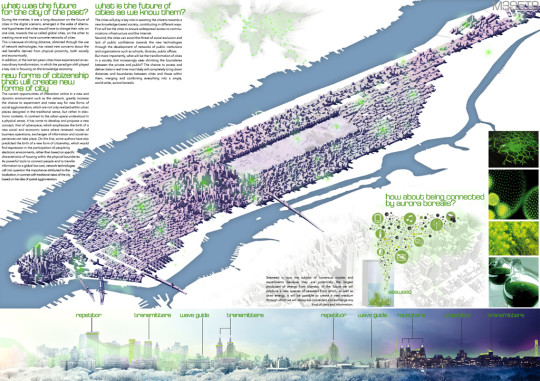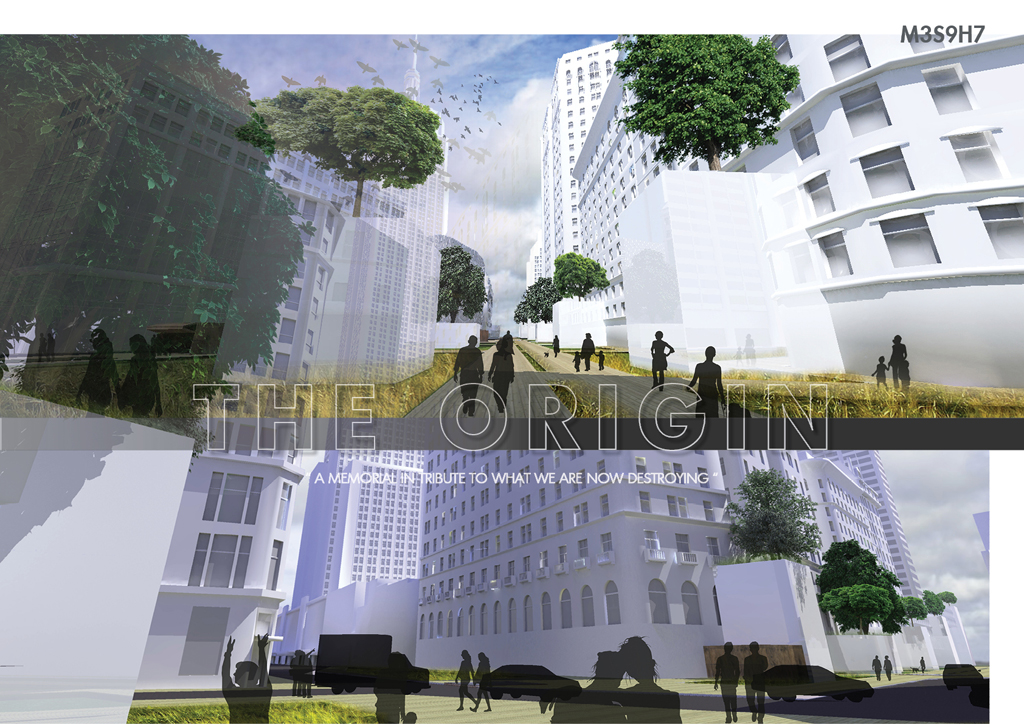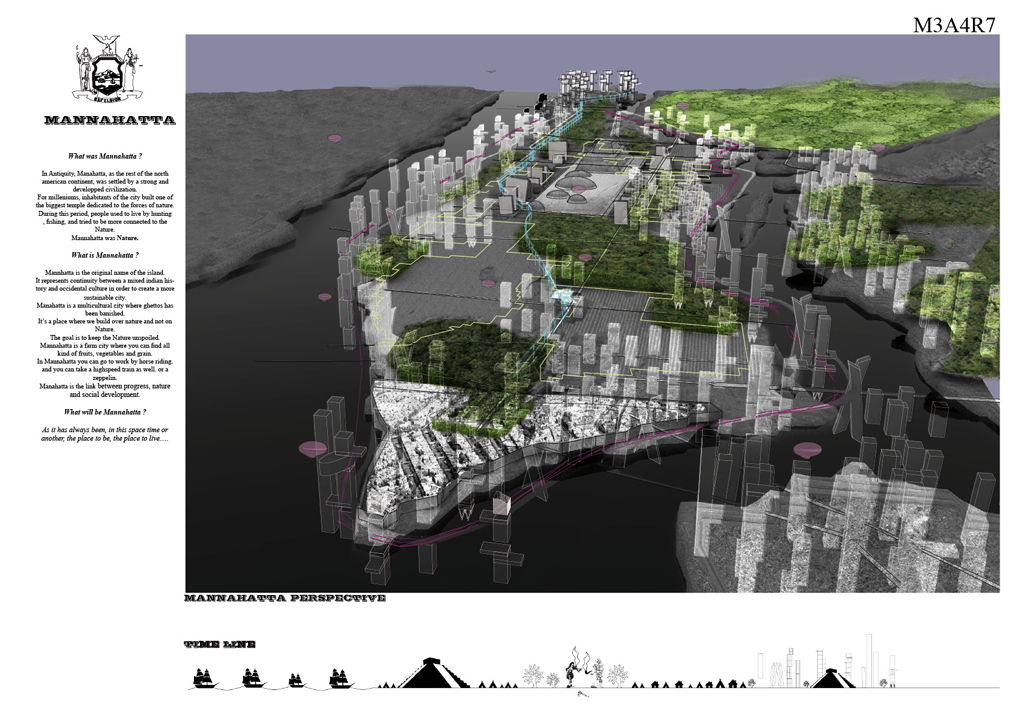Info:
Title: Aurora Borealis What was the future for the city of the past? - Code: M3S5T8Contest: NY / 2012
By: R. Amistà - D. Cannatella - E. De Marco - M. Lanzi - E. Mignone - S. Sposito
Views: 3062 Likes: 1
Votes:
JOSHUA PRINCE-RAMUS6 EVA FRANCH I GILABERT0 ROLAND SNOOKS0 SHOHEI SHIGEMATSU2 ALESSANDRO ORSINI2 MITCHELL JOACHIM11.8
Aurora Borealis What was the future for the city of the past?

 During the nineties, it was a long discussion on the future of cities in the digital scenario, emerged in the wake of alternative hypotheses that cities would have to change their role: on one side, towards the so-called global cities, on the other to creating more and more concrete networks of cities. This is because shrinking distance, obtained through the use of network technologies, has raised new concerns about the real benefits derived from physical proximity, both socially and economically. In addition, in the last ten years cities have experienced an extraordinary transformation, in which the paradigm shift played a key role in focusing on the knowledge economy.
During the nineties, it was a long discussion on the future of cities in the digital scenario, emerged in the wake of alternative hypotheses that cities would have to change their role: on one side, towards the so-called global cities, on the other to creating more and more concrete networks of cities. This is because shrinking distance, obtained through the use of network technologies, has raised new concerns about the real benefits derived from physical proximity, both socially and economically. In addition, in the last ten years cities have experienced an extraordinary transformation, in which the paradigm shift played a key role in focusing on the knowledge economy.
New forms of citizenship that will create new forms of city
The current opportunities of interaction online in a new and dynamic environment such as the network, greatly increase the chance to experiment and make way for new forms of social agglomeration, which are not only realized within urban places designed in the traditional sense, but rather in electronic contexts. In contrast to the urban space understood in a physical sense, it has come to develop and propose a new concept, that of cyberspace, which emphasizes the birth of a new social and economic arena where renewed modes of business operations, exchanges of information and social experiences can take place. On this line, some authors have also predicted the birth of a new form of citizenship, which would find expression in the participation of people by electronic environments, rather than based on specific characteristics of housing within the physical boundaries.
As powerful tools to connect people and to transfer information to a global low-cost, network technologies call into question the importance attributed to the localization, in contrast with traditional views of the city based on the idea of ??spatial agglomeration.
In this context, what is the future of cities as we know them?
The cities will play a key role in assisting the citizens towards a new knowledge-based society, contributing in different ways.
First will be the cities to ensure widespread access to communications infrastructure and the Internet.
Second, the cities can avoid the threat of social exclusion and lack of public confidence towards the new technologies through the development of networks of public institutions and organizations such as schools, libraries, public offices.
But more importantly, what will be the transformation of cities in a society that increasingly sees shrinking the boundaries between the private and public? The chance to access and deliver data in real time most likely will completely bring down distances and boundaries between cities and those within them, merging and combining everything into a single, world-wide, aurora borealis.
Info:
Title: Aurora Borealis What was the future for the city of the past?
Time: 13 giugno 2012
Category: NY
Views: 3062 Likes: 1
Tags: -






